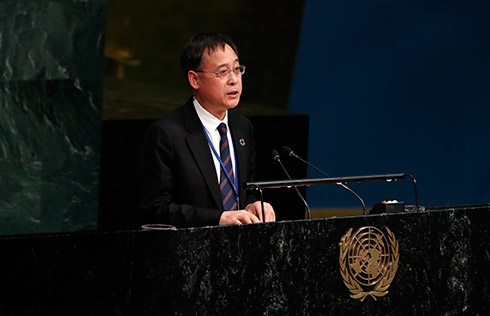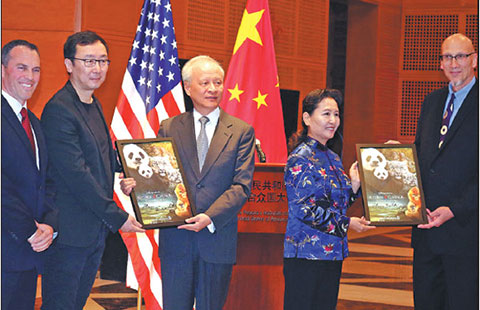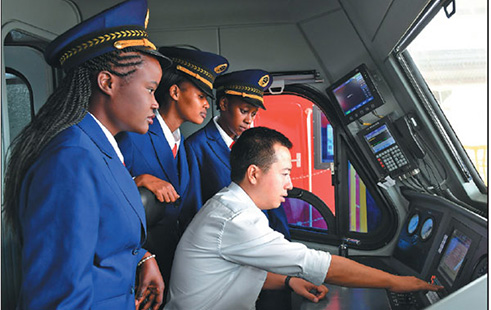Belt and Road offers new paths
Two years ago, when Pakistani student Khola Masood was dazzled by the offers from PhD programs in Japan, Italy, New Zealand and China, she picked China and enrolled at the University of International Business and Economics in Beijing to advance her education.
The 25-year-old business management PhD candidate also aspires to learn Chinese, as she sees growing investment and cooperation between the two countries.
"Having Chinese language capabilities can be advantageous when I go back to Pakistan," Masood adds.
The advantage of studying in China includes international experience and the quality education, she believes.
In 2016, China became the third most-popular destination for students who study abroad after the United States and the United Kingdom. Students who come from Belt and Road countries increased 13.6 percent from 2015. The total number was 207,746, according to the Ministry of Education.
"The continuous rise of China's education quality has won recognition from both students and parents abroad," says Liu Jinlan, associate dean of the UIBE's School of International Education.
The deepening exchanges between China and countries along the Belt and Road routes create a higher demand for international talent, she says.
Liu notes that China's policy support, such as the Belt and Road scholarship offered to 10,000 foreign students each year for the next five years, also contributes to this rise.
After finishing high school at home, Albanian student Florian Osmanaj received a six-year full scholarship from the China Scholarship Council, including free tuition, accommodation, medical insurance and a 2,500 yuan ($363) monthly stipend.
But when Osmanaj first arrived at Shandong University to study Chinese in September 2014, he encountered a great language barrier. "I didn't even know how to say nihao (hello)," he says. He later got help from both teachers and Chinese friends.
Starting from the second year, Osmanaj enrolled in Capital Medical University as a clinical-medicine major. The classes are all in Chinese.
"I study nearly every day," he says. There were times that he got frustrated, but his passion in medicine motivated him to keep reading and working hard.
Osmanaj is happy the university he attends is affiliated with many high-caliber hospitals in Beijing. That offers him abundant opportunities to get hands-on experience. He sees closer ties between his country and China. He even persuaded his younger brother back home attend a local Confucius Institute to study Chinese. "It's difficult to find other countries that offer opportunities more than China at this moment," he says.
Osmanaj believes his future will be connected with China.
"I feel China is my second home," he says.
"Even if I don't live here in the future, I will try my best to present Chinese culture in my country, and tell others about the food, the people and the places."


























